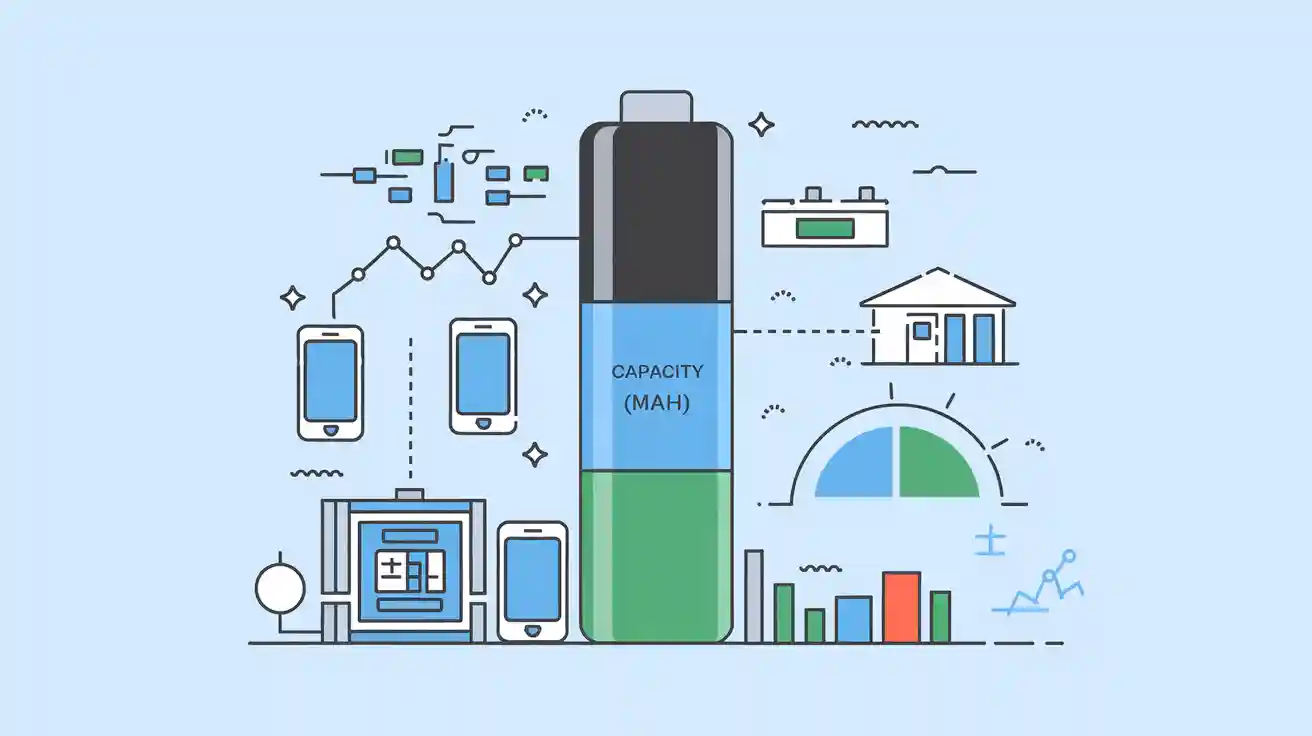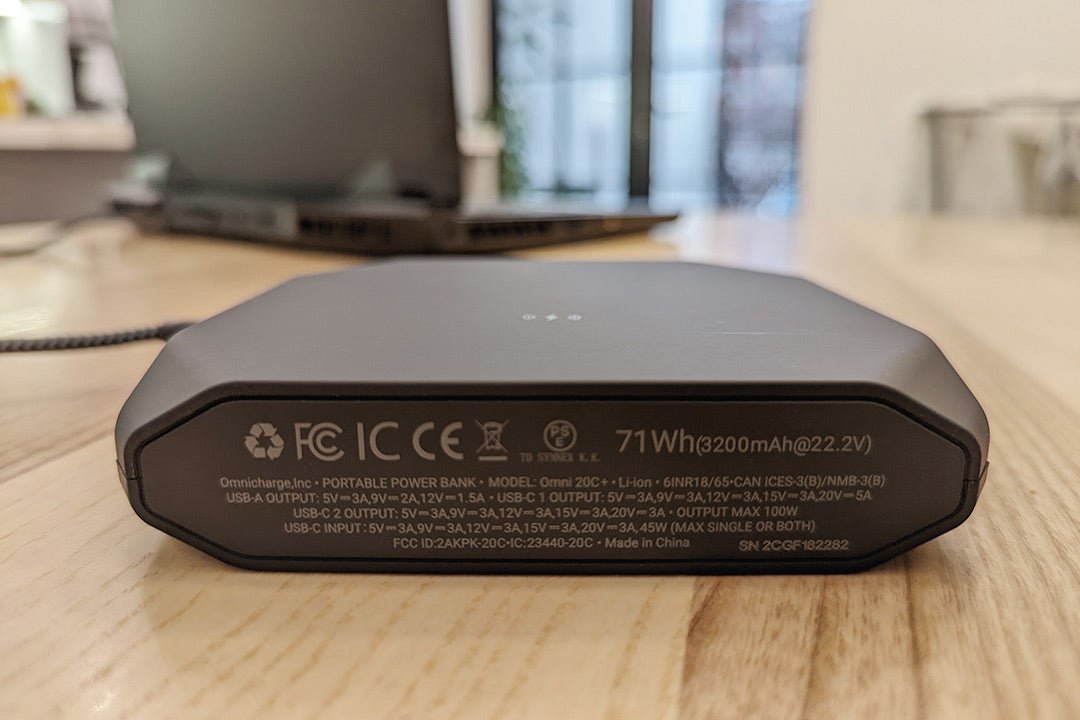
Definición en una frase
Capacity (mAh) is a unit that measures the amount of electric charge a battery can deliver over time, indicating how long a device can operate before needing a recharge.
Explicación detallada
Capacity, expressed in milliampere-hours (mAh), quantifies how much current a battery can supply for one hour. For example, a 2000mAh battery can theoretically provide 2000 milliamperes (2 amperes) for one hour, or 1000 milliamperes for two hours. This metric is crucial for understanding how long electronic devices—such as smartphones, laptops, or industrial sensors—can function on a single charge.
The mAh value is determined under standardized test conditions, typically at a specific discharge rate (like 0.2C), temperature, and cutoff voltage. International standards such as IEC 61960 and UL 1642/2054 define these testing protocols to ensure consistency and safety (Battery University, NexPCB).
Key Components of Capacity (mAh)
- Current (mA): The flow of electric charge, measured in milliamperes.
- Time (h): The duration (in hours) the current is supplied.
- Voltage (V): While mAh measures charge, voltage is needed to calculate total energy (Wh).
- Test Conditions: Standardized discharge rate, temperature, and cutoff voltage as defined by IEC/UL standards.
Aplicaciones reales
- Consumer Electronics: Smartphones, tablets, and laptops often list battery capacity in mAh, helping users estimate device runtime.
- Industrial Equipment: Custom lithium battery packs for sensors, robots, or backup systems rely on precise capacity ratings to ensure operational reliability.
- Smart Home Devices: Devices like smart locks or thermostats require batteries with specific mAh ratings for long-term, maintenance-free operation.
- Custom Solutions: Companies like Yungbang provide tailored lithium battery solutions, offering capacities such as 2000mAh or 5000mAh for industrial and smart home clients, ensuring optimal performance for unique application needs.
Capacity (mAh) vs. Energy (Wh)
While mAh measures the charge a battery can deliver, watt-hours (Wh) measure the total energy. The relationship is:
Wh = (mAh × V) / 1000
This means two batteries with the same mAh but different voltages will store different amounts of energy. For cross-device or cross-voltage comparisons, Wh is the more accurate metric (Omnicharge).
Factors Affecting Capacity
- Temperature: High or low temperatures can reduce effective capacity.
- Discharge Rate (C-rate): Faster discharge rates typically lower usable capacity.
- Ciclo de vida: Capacity decreases over repeated charge/discharge cycles.
- Testing Standards: Only standardized tests (IEC/UL) provide comparable mAh ratings.
Conceptos relacionados
- Voltage (V): The electric potential difference; needed to convert mAh to Wh.
- Energy (Wh): Total energy delivered; Wh = (mAh × V) / 1000.
- C-rate: The rate at which a battery is charged or discharged relative to its capacity.
- Nominal Capacity: The rated capacity under standard conditions.
- Densidad energética: The amount of energy stored per unit weight or volume.
Visual Guide: Capacity vs. Energy

Why Capacity (mAh) Matters for Custom Battery Solutions
For businesses and manufacturers, understanding and specifying the right capacity is essential for product reliability and user satisfaction. Yungbang specializes in custom lithium battery packs, rigorously tested to international standards (IEC, UL, UN38.3), and tailored to your device’s unique requirements—whether for consumer electronics, industrial automation, or smart home systems.
Explore Yungbang’s custom battery solutions to power your innovation with confidence.

